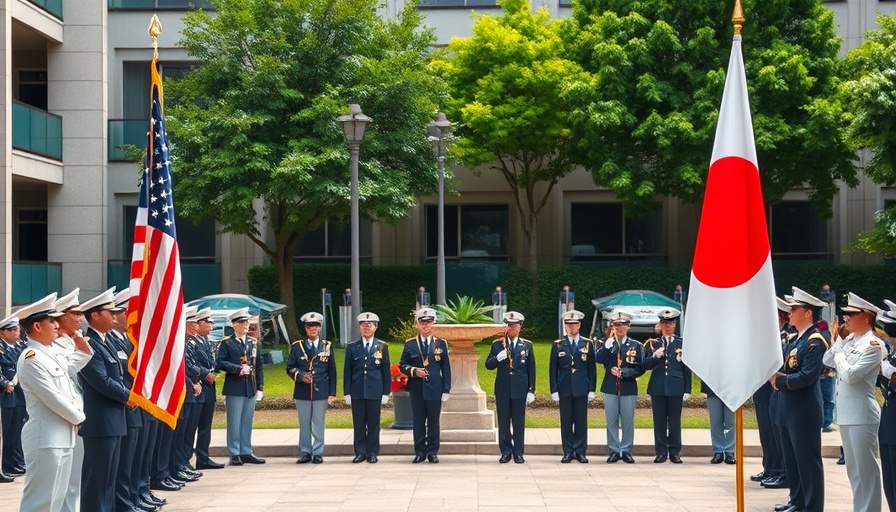
The Rise of Military Presence: Understanding Hegseth's Comments
In a recent statement, conservative commentator Pete Hegseth asserted that the United States is establishing a ‘war-fighting’ base in Japan, highlighting a trend toward increased military engagement in the Asia-Pacific region. This revelation is poised to raise eyebrows and initiate discussions about the implications for regional stability and US-Japan relations.
Importance of Military Alliances in the Pacific
The strategic partnership between the United States and Japan has evolved significantly since World War II, reflecting a mutual understanding of the current geopolitical landscape. With tensions in the region, particularly concerning North Korea and China’s expanding influence, this potential military development seeks not only to secure US interests but also to enhance Japan's defensive capabilities. In light of these events, understanding Hegseth's remarks is critical as they signal a potential shift in defense dynamics.
Military Bases and Their Socio-Political Implications
The establishment of a military base typically stirs a multitude of social and political reactions from local communities. In Japan, where historical context plays a significant role, the presence of US military forces has historically been met with both support and opposition. The societal impacts of stationing troops come into focus, with considerations for local economies, cultural interactions, and community sentiment. As more military personnel are stationed in Japan, local businesses could see an uptick in economic activity, yet it may also provoke unrest among segments of the population concerned about sovereignty and past grievances.
Comparative Perspectives: Military Presence Around the World
Examining other regions, the US maintains a network of military bases globally, each with distinct impacts on host nations. These bases often serve as strategic hubs for rapid deployment and response but can also lead to tensions with local populations. Similarly, in Okinawa, Japan, pushes for reduced military presence amidst complaints of noise and crime have illustrated the complex relationship between the US military and local residents. Hegseth's statement on reinforcing military actions underscores how these bases operate not solely as military installations but as pivotal components in larger geopolitical strategies.
Future Trends in US Military Strategy in Asia
As we look to the future, Hegseth's comments hint at a strategic recalibration of US military objectives in Asia. With the growing challenges in the region and threats posed by North Korea’s missile tests, the US may be positioning itself to counterbalance China's assertiveness. Observers predict that this shift could pave the way for enhanced defense collaborations, increased troop deployments, and the establishment of new bases.
What This Means for Japan and the US Relationship
The prospect of a new military base in Japan carries implications for the bilateral relationship, suggesting that both nations are committed to navigating evolving threats and enhancing mutual security. While there may be economic incentives for Japan in hosting a US base, it will be essential to balance national pride and historical concerns. The future of US-Japan ties may hinge on how both nations communicate their long-term goals and respect for regional stability.
Decisions That Can Be Made With This Information
Understanding the intricacies of Hegseth's remarks and their broader implications can influence how policy-makers, business leaders, and civics engage with this topic. Local businesses in Japan might seek to capitalize on potential economic inflows from increased military personnel. Moreover, public sentiment and activism could shape future negotiations on troop presence and military cooperation. Knowledge of these dynamics allows various stakeholders to approach the evolving landscape with greater awareness.
Engaging with the Future of US-Japan Security Relations
As developments unfold, staying informed and engaged with the complexities of US military strategy in Asia will be paramount. For those in the Bay Area and beyond, the implications of these military strategies extend to international business relations and economic forecasts, making it vital to remain aware of shifts that may influence commercial activities both locally and globally.
 Add Row
Add Row  Add
Add 



Write A Comment